

- Englischkurse
- Deutsch Privattraining
- Sprachtests & Zertifikate
- Sprache & Kultur
- Über uns
- Jetzt buchen

After six long years, in August 1945, what is known as the Second World War came to an end. London, like so many other European cities, gradually awoke from a trauma of destruction. It is this time of disbelief, relief, joy, and the dawning of a new world, a new social order, a new generation, that is the overriding theme of this year’s course. A course that will introduce to you six forgotten novels, by six unforgettable writers.
Your course-leader – Philip Moore
Participants are asked to read the following novels, which will be discussed in order:
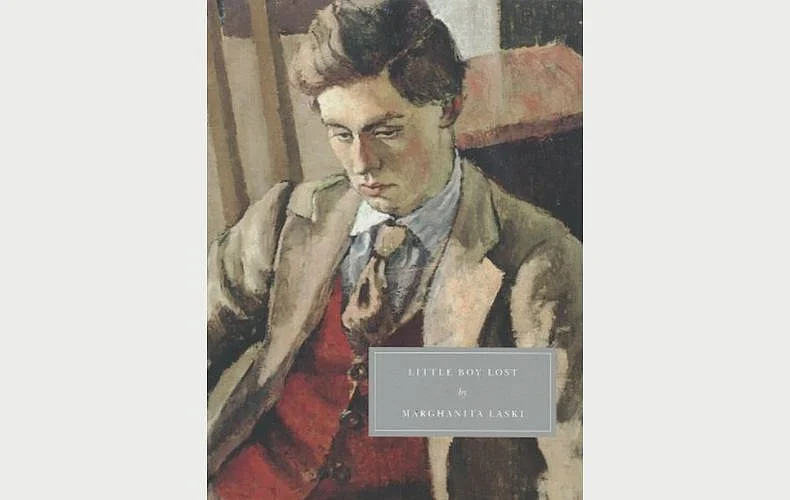
Hilary Wainwright, a poet and intellectual, returns to a war-ravaged and impoverished France, determined to find a child who vanished five years earlier. The novel poses haunting questions: Is the child truly his? And even more unsettling—does he actually want the child? These questions can be interpreted both literally and metaphorically, allowing the novel to resonate on multiple levels. What makes this story truly compelling is its blend of narrative drive and literary finesse. It grips you with the intensity of a thriller, yet it’s crafted with remarkable clarity and precision.
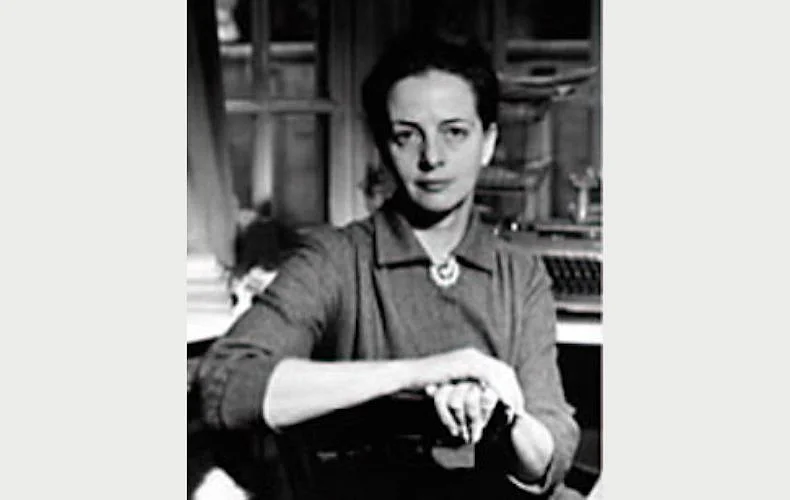
Marghanita Laski (1915-1988) was born into a Jewish intellectual family, with Harold Laski as her uncle. After studying at Oxford, she worked in fashion, journalism, and married publisher John Howard. Laski wrote six novels, including Little Boy Lost and The Victorian Chaise-longue, and was a noted critic with works on Jane Austen and George Eliot. She regularly appeared on radio shows like The Brains Trust and contributed to the Oxford English Dictionary. Laski lived in Hampstead until her death.
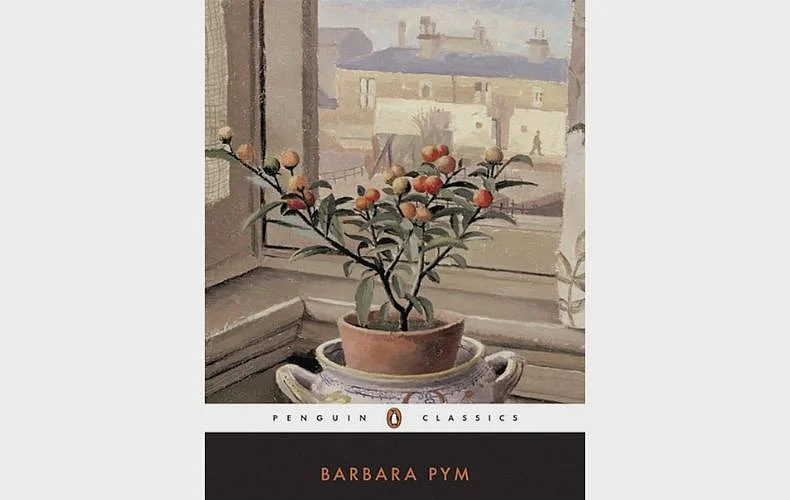
Excellent Women is one of Barbara Pym's richest and most amusing high comedies. Mildred Lathbury is a clergyman's daughter and a mild-mannered spinster in 1950s England. She is one of those "excellent women," the smart, supportive, repressed women who men take for granted. As Mildred gets embroiled in the lives of her new neighbors - anthropologist Helena Napier and her handsome, dashing husband, Rocky, and Julian Malory, the vicar next door - the novel presents a series of snapshots of human life as actually, and pluckily, lived in a vanishing world of manners and repressed desires.
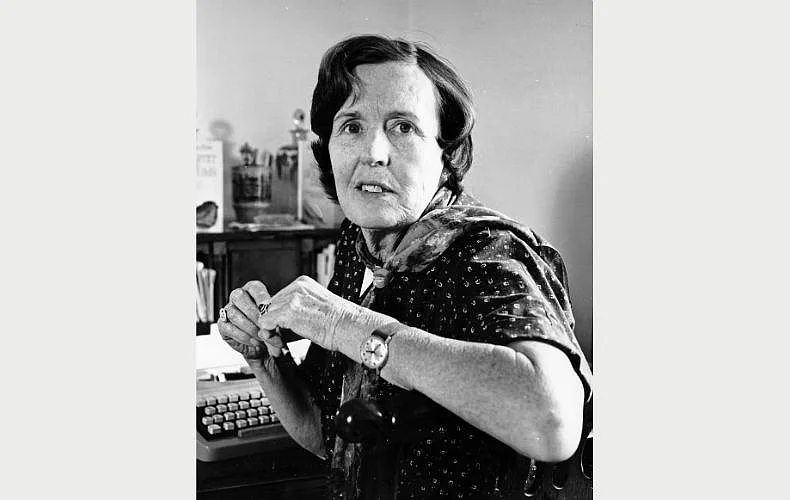
Barbara Pym was a British writer known for comic novels like Excellent Women (1952). She studied English at Oxford and served in the Women's Royal Naval Service during World War II. After publishing six novels, her seventh was rejected, but a 1975 Times Literary Supplement article revived her career. This led to her comeback with Quartet in Autumn, which was nominated for the Booker Prize. Pym worked at the International African Institute and later lived in Oxfordshire with her sister. Several of her works were published posthumously.
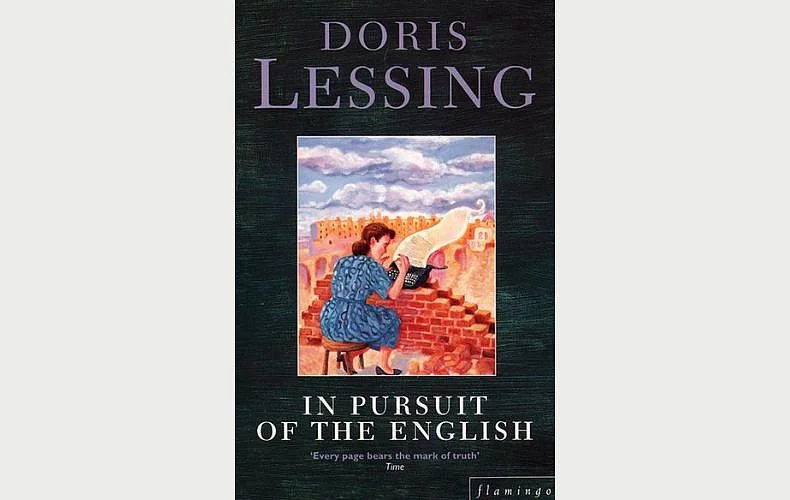
In Pursuit of the English by Doris Lessing portrays life in a working-class London rooming house, featuring lively and flawed characters such as Bobby Brent, a con man, Mrs. Skeffington, an abusive mother, and Miss Priest, a disillusioned prostitute. Through an unsentimental lens, Lessing combines memoir with biting humor and cultural critique, offering a brutally honest yet engaging depiction of human nature and London life. The narrative blends farcical elements with deep insight, creating a vivid exploration of social and individual complexities.
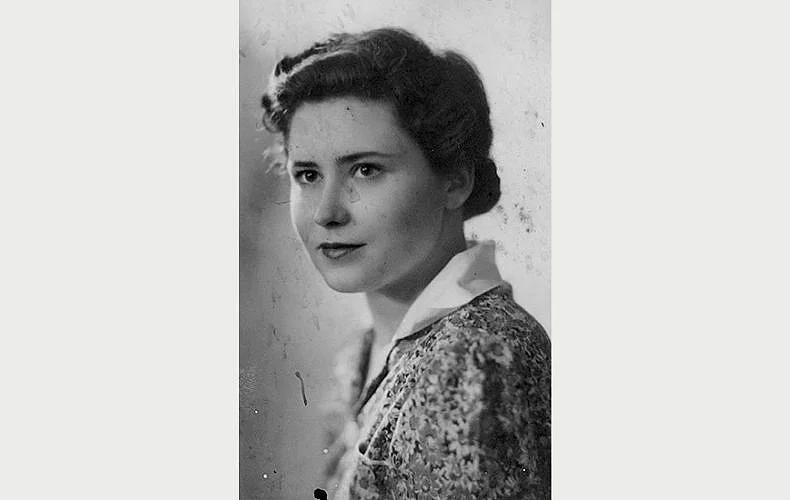
Doris May Lessing (1919–2013) was a British novelist born in Iran to British parents and raised in Southern Rhodesia (now Zimbabwe). She moved to London in 1949 and gained prominence with works like The Grass Is Singing (1950), In Pursuit of the English (1960), The Golden Notebook (1962), and the Canopus in Argos series. Lessing won the 2007 Nobel Prize in Literature, recognized for her portrayal of the female experience and critical examination of civilization. She also received the David Cohen Prize in 2001, and in 2008, The Times ranked her among the greatest British writers since 1945.
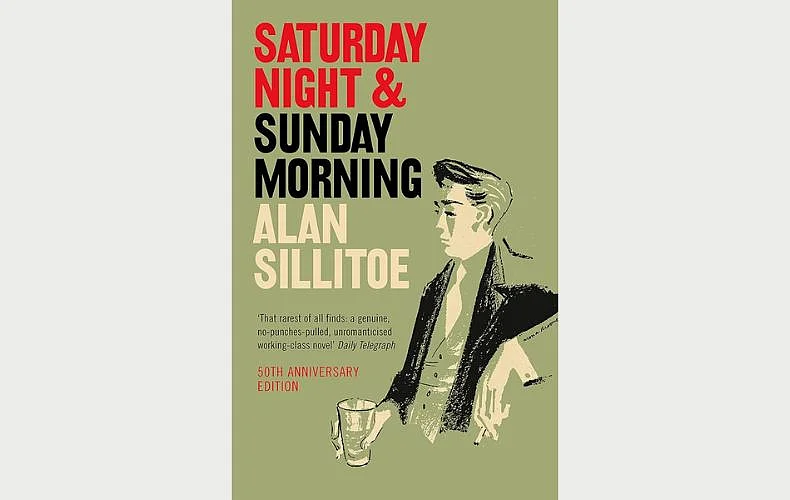
Saturday Night and Sunday Morning (1951) by Alan Sillitoe follows Arthur Seaton, a factory worker with a rebellious streak. By day, Arthur labors in a dreary factory; by night, he immerses himself in pub culture and casual affairs, driven by his motto, "If it's going, it's for me." His weekends are a cycle of seeking pleasure and defying societal norms, particularly on Saturday nights. However, Sunday mornings bring a harsh reality, forcing Arthur to confront the emptiness and consequences of his hedonistic lifestyle. As he faces the repercussions, Arthur risks becoming ensnared by the very life he sought to escape.
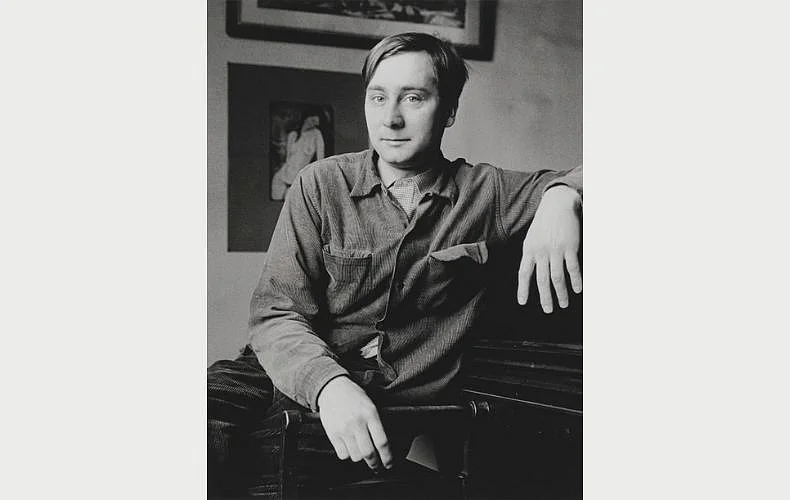
Alan Sillitoe (March 4, 1928 – April 25, 2010) was a key figure among the Angry Young Men, known for his raw depictions of working-class life in post-WWII Britain. Born in Nottingham to a tannery worker, Sillitoe started working in factories at 14 and later served in the air force. After contracting tuberculosis and spending time in a hospital, he lived in France and Spain, where poet Robert Graves encouraged him to write about Nottingham. This led to his acclaimed debut novel, Saturday Night and Sunday Morning (1958). Sillitoe also wrote children’s books, poetry, plays, and an autobiography, Life Without Armour (1995).

In the post-war London setting of Bloomsbury Books, a century-old bookstore, three women navigate a rapidly changing world. Vivien Lowry, grieving her WWII-deceased fiancé, struggles with grievances, including Alec McDonough, the Head of Fiction. Grace Perkins, supporting her family after her husband's breakdown, is torn between family duty and personal dreams. Evie Stone, a pioneering Cambridge graduate denied an academic role, seeks to reshape her future while working at the bookstore. As they interact with notable literary figures like Daphne Du Maurier and Samuel Beckett, their intertwined stories reflect their quest for fulfillment in a transforming society.
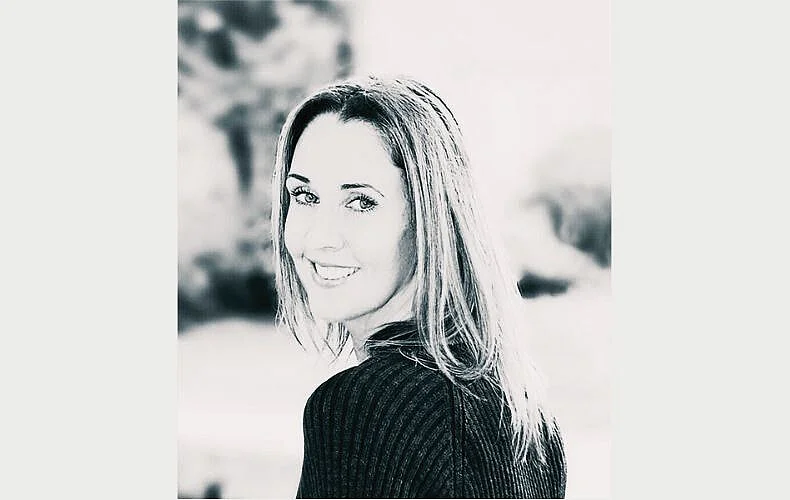
Natalie Jenner is a USA Today and #1 nationally bestselling author known for The Jane Austen Society and Bloomsbury Girls, both recognized as Amazon Best Books of the Month, Indie Next Picks, and People Magazine Books of the Week. The Jane Austen Society was a runner-up for Best Historical Fiction in the 2020 Goodreads Choice Awards and has been translated into over twenty languages. Natalie's third novel, Every Time We Say Goodbye, releases on May 14, 2024. Born in England and raised in Canada, Natalie has been a corporate lawyer and career coach and once owned a bookstore in Oakville, Ontario, where she now lives with her family and two rescue dogs.
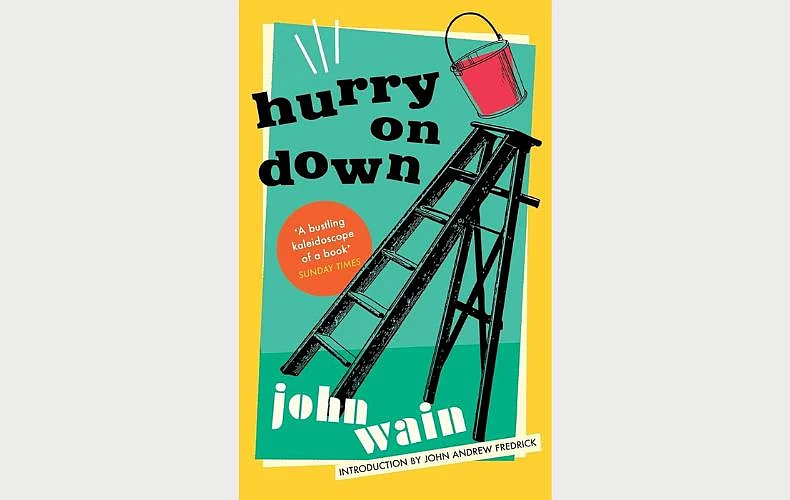
In John Wain's classic novel, the protagonist Charles Lumley is a young man just out of university, grappling with his future. Feeling trapped by his bourgeois upbringing, Charles seeks freedom through a picaresque and comedic journey across 1950s England. As he takes on a series of eclectic jobs—from window cleaner to nightclub bouncer to drug trafficker—he experiences a range of humorous misadventures. Throughout his escapades, Charles aims to discover his true self and win the affection of the captivating Veronica Roderick. His journey is a blend of self-discovery and romance, set against the backdrop of a changing England.
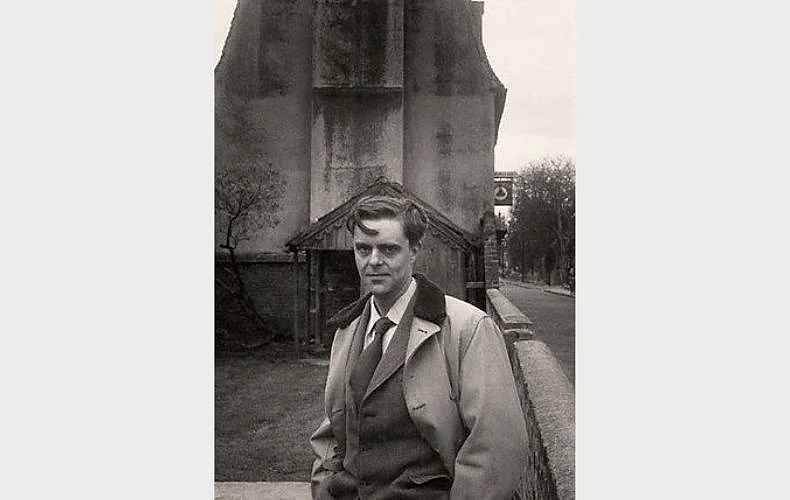
John Barrington Wain was an English poet, novelist, and critic, notably linked to "The Movement" literary group. Born in Stoke-on-Trent, Staffordshire, he studied at St. John's College, Oxford, where he earned a first in his BA in 1946 and an MA in 1950. Wain’s career included freelance journalism, writing, and reviewing for various newspapers and radio. His debut novel, Hurry on Down, published in 1953, explores themes of self-discovery and societal expectations. Wain’s personal life saw him marry Marianne Uffenheimer in 1947, followed by Eirian Mary James in 1960, and Patricia Adams in 1989. He passed away in Oxford on May 24, 1994.